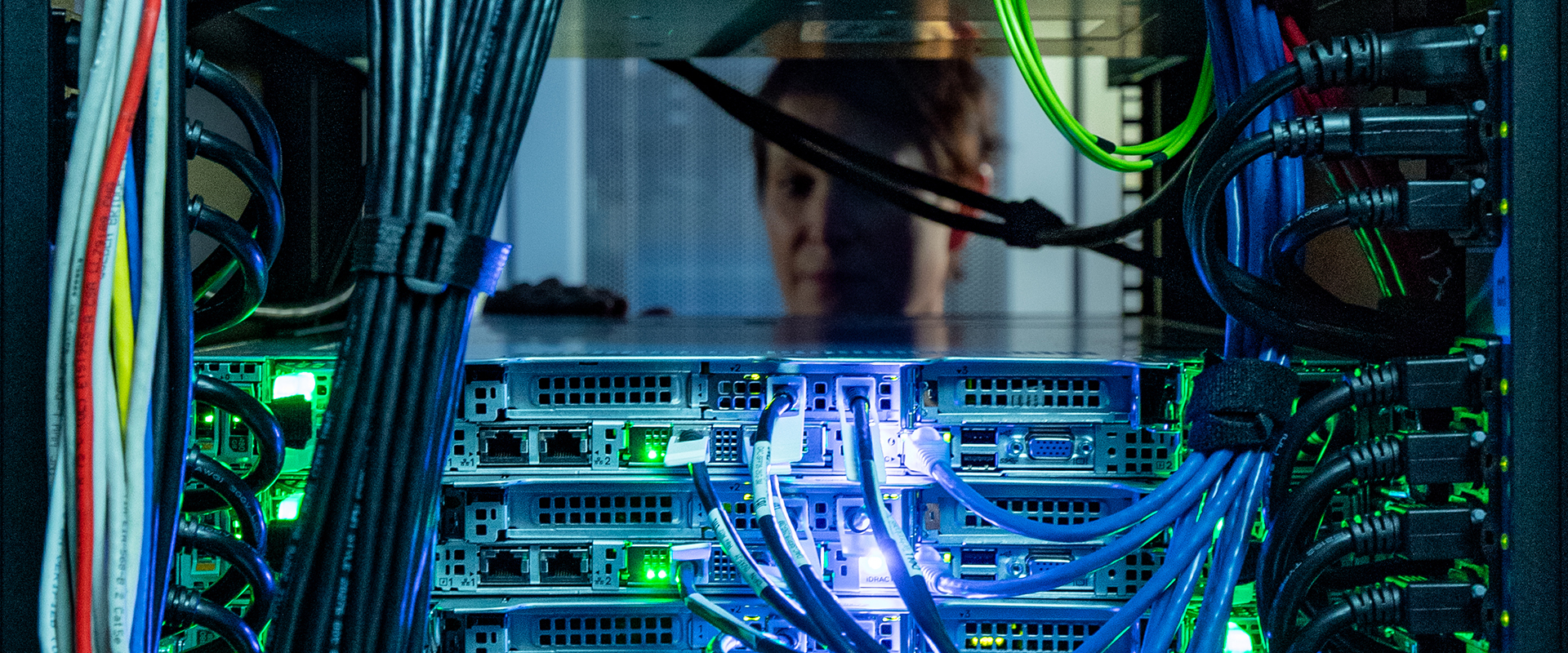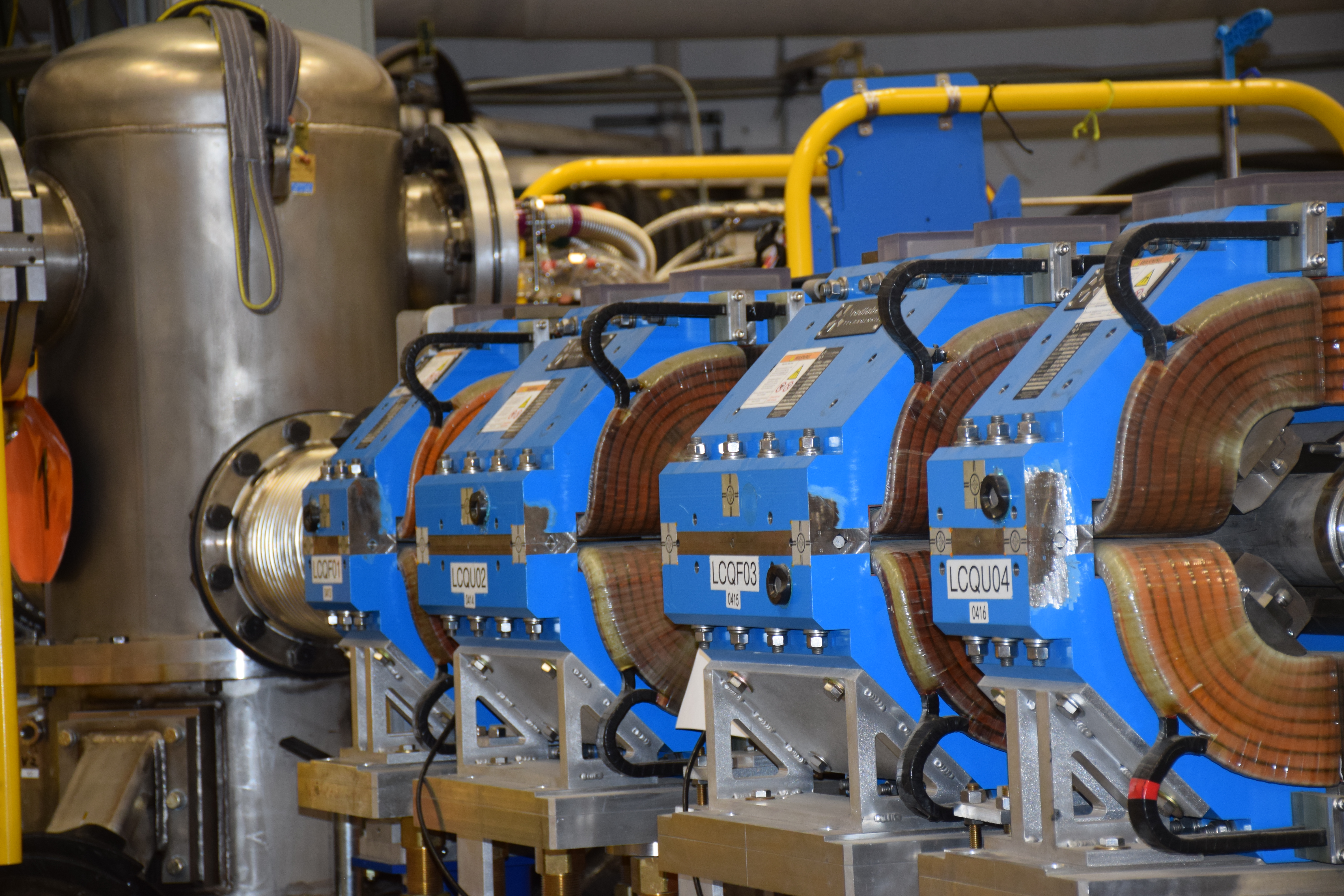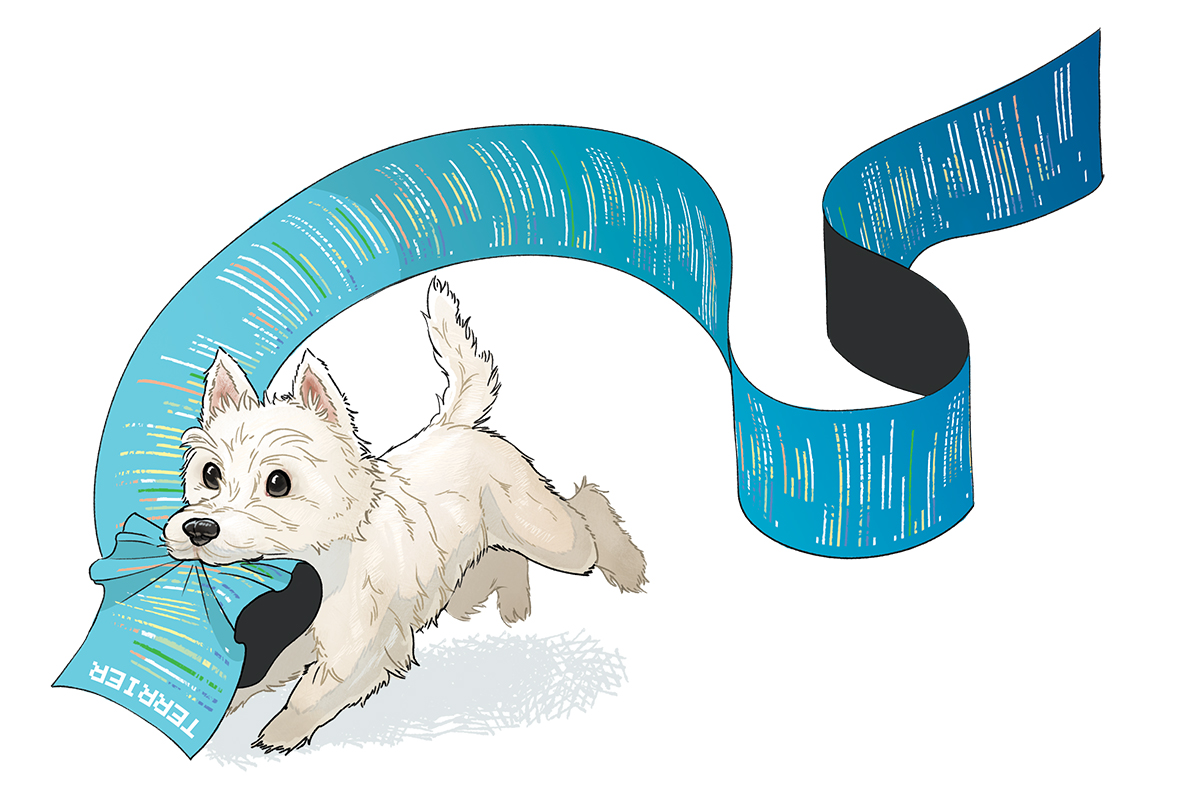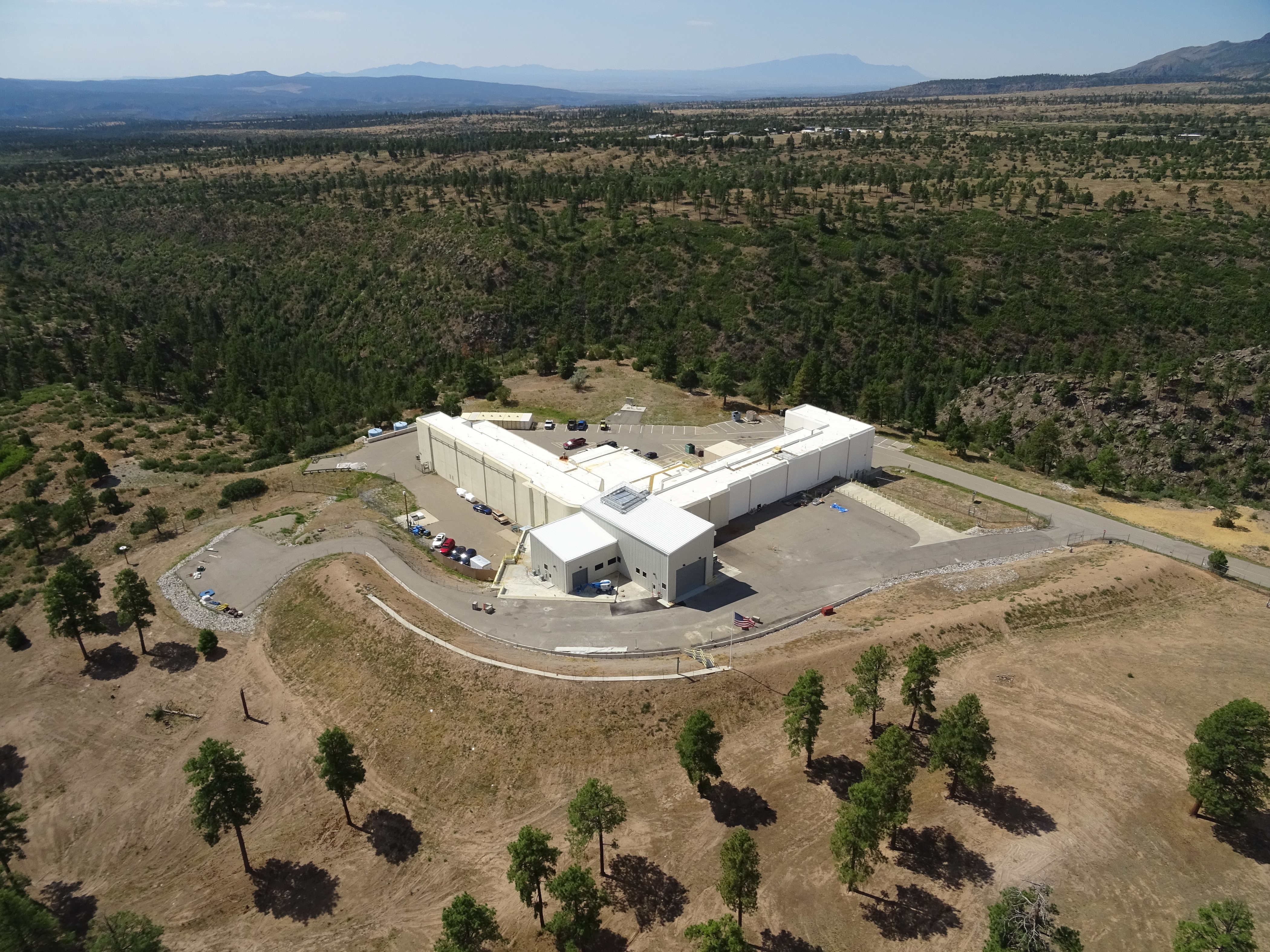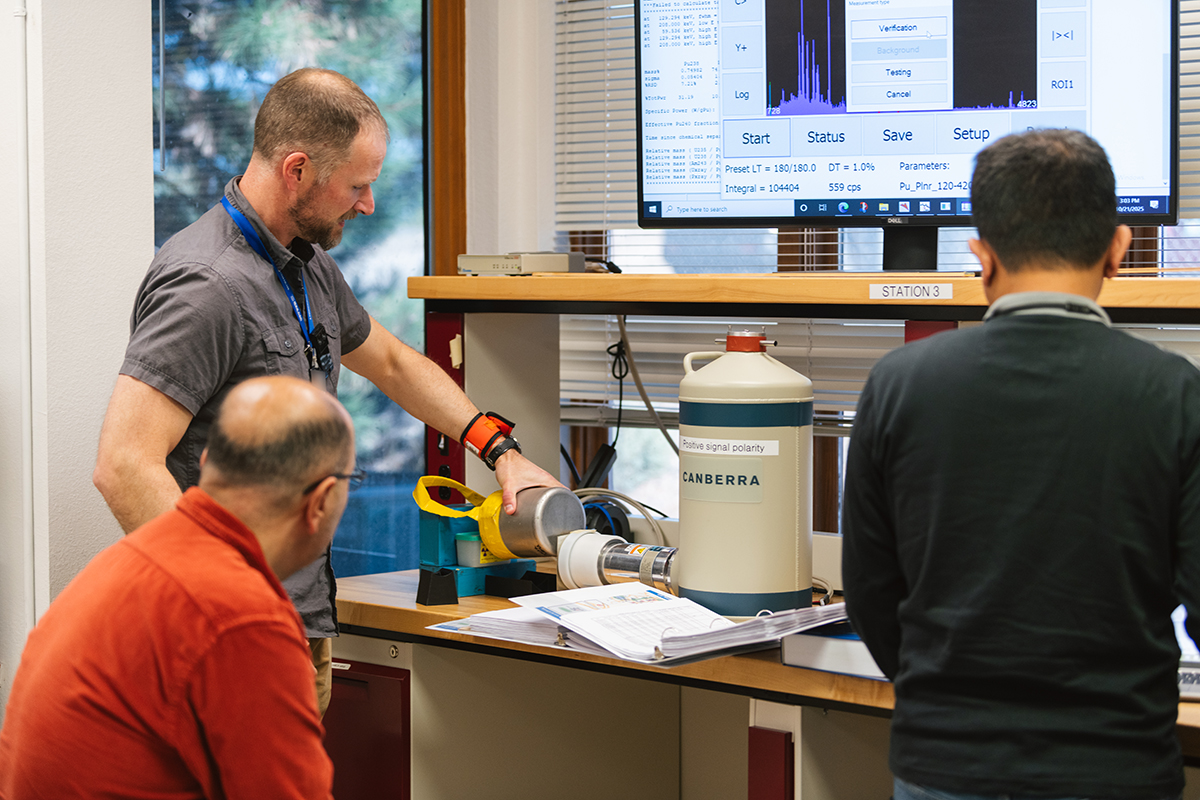Till the cows come home
Brad Meyer works tirelessly in support of national security.
- Whitney Spivey, Editor

Brad Meyer is no stranger to hard work. “I grew up on a dairy farm in Wisconsin,” he says. “I was up before the sun rose, and I was done when the sun set.”
That relentless work ethic carried him from the farm to the U.S. Air Force, then to the University of Wisconsin, Sandia National Laboratories, and ultimately to Los Alamos National Laboratory, where he is a research and development engineer in the Gas Transfer Systems group. Despite working 12-hour days, six days a week, Meyer says his job at Los Alamos is “easy by comparison” to life on the farm.
Gas transfer systems may be small, but they are essential components of nuclear weapons. These systems—tailored to the design of each weapon—contain tritium, a radioactive hydrogen isotope that significantly boosts the yield, or power, of a nuclear detonation. Meyer’s advancements in gas transfer systems have been hailed as one of the top 10 weapons breakthroughs since the Manhattan Project.
“Brad’s contributions to gas transfer systems have touched every weapon in the current nuclear stockpile, and they will be integrated into all future weapon designs,” said Laboratory Director Thom Mason during a recent celebration of Meyer’s 30-year anniversary at the Lab. “These devices have increased component lifetimes, reduced operational risks for our warfighters, and enhanced the reliability and robustness of the stockpile.”
In 2004, Meyer was named a Laboratory Fellow in recognition of his work not only on gas transfer systems but also in areas such as plutonium pit surveillance, plutonium-tritium testing methodologies, and the safer transport of warheads. “I’m a firm believer in mastering three things: theoretical work, computational work, and experimental work,” Meyer says. “Experimental work is always the humbling one—because it tells you if you’re right or wrong.”
In 2016, Meyer collaborated with Lab Director Charlie McMillan to advocate for increased tritium production at the Tennessee Valley Authority’s Watts Bar Nuclear Plant. In 2024, McMillan endorsed Meyer for the Los Alamos Medal, the Laboratory’s highest honor. “Brad's vocal advocacy underscores his unwavering commitment to advancing our national security interests and ensuring the efficacy of our nuclear deterrent,”McMillan wrote in a letter of support. “His foresight and proactive approach have indelibly shaped our institution, for which we are profoundly grateful.”
Beyond his technical contributions, Meyer has also made it a priority to recruit and mentor the next generation of scientists and engineers. He often hires candidates straight out of school, so “they don’t get bad habits.” He looks for people who have experience building things with their hands. One of his favorite interview questions is: “Have you ever taken apart a car and worked on the engine?”
Meyer sees building a strong workforce as vital to national security. “My goal has always been to help protect the country,” he says. ★
